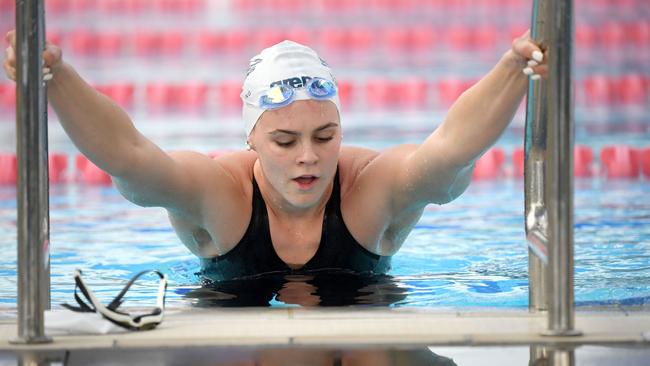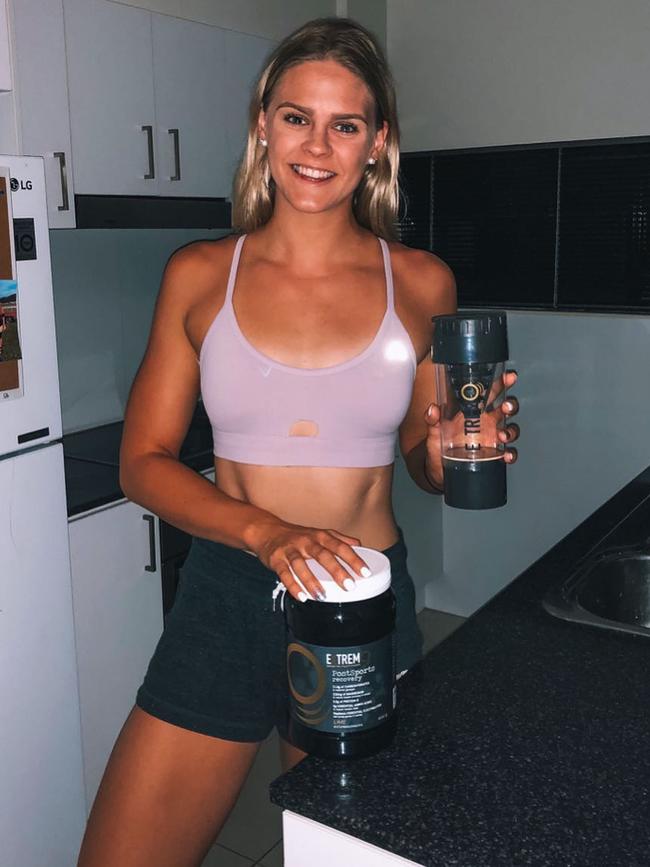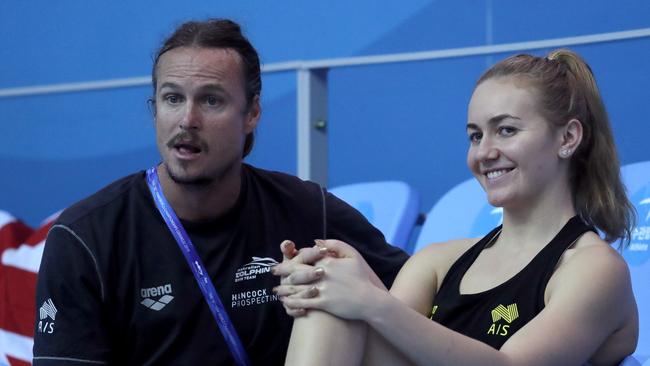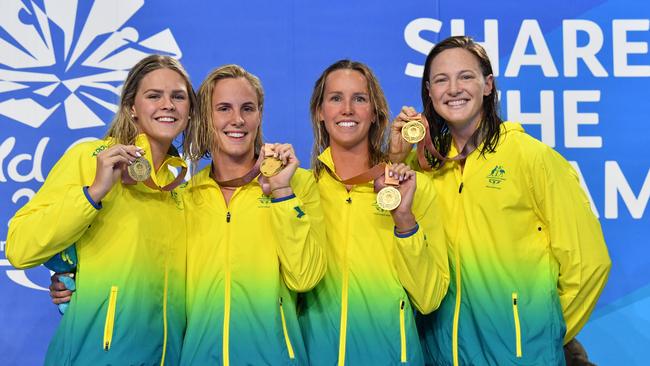The muscle drug that sank Aussie swim star Shayna Jack
Shayna Jack will almost certainly be suspended for the Tokyo Olympics and possibly beyond.

Australian swimmer Shayna Jack will almost certainly be suspended for next year’s Tokyo Olympics and possibly beyond after testing positive — both A and B samples — to Ligandrol, a drug prominently available in bodybuilding circles.
Jack revealed yesterday on Instagram that she had learned on July 19, two days before the world championships started in South Korea, that her B sample had confirmed the A result revealing traces of the non-steroidal anabolic agent.
From the fast lane to notoriety
“As I read the result, my brain couldn’t even comprehend what I was seeing,” Jack wrote. “I instantly turned to my grandma, who was with me at the time, and wailed. With my legs no longer holding me up, I fell to the ground.” It is unlikely that the Australian Sport Anti-Doping Authority will show her any mercy.
Ligandrol, whose legitimate medical purpose is for treatment of osteoporosis, cancer, muscular dystrophy and muscle wastage, has become a drug of choice lately, with the ASADA website last year posting a warning that there had been nine cases detected since 2015. ASADA went on to warn athletes that not only was LGD-4033 banned in sport but it had not yet completed its clinical trials. The World Anti-Doping Agency banned it in 2008 because, it said, the drug could produce effects similar to anabolic steroids.
Australia has been left embarrassed and accused of hypocrisy because Swimming Australia remained silent following her positive drug tests on July 12 and July 19, with Olympic 400m freestyle champion Mack Horton making a one-man stand against doping in sport at the world championships two days later.

Swimming Australia chief executive Leigh Russell admitted yesterday the positive test result was “bitterly disappointing and embarrassing to our team, our sport and our country”.
Horton said he was “let down” by news of Jack’s positive drug test. “I was disappointed to learn … that a fellow Dolphins team member had recently returned a positive A sample,” Horton said.
“I applaud the decision to immediately withdraw the athlete in question from further competition until this matter is resolved.”
Jack’s coach, Dean Boxall, who also coaches Ariarne Titmus and Mitch Larkin, stood by her. “I believe in Shayna and her story. I know my athlete.

“I support our stance on zero tolerance for drug cheats, absolutely zero tolerance. And so does Shayna.”
Jack revealed she had gone on an 8km walk with her coach in South Korea after she was told of the positive test. “I wanted to take Shayna out so we went for an 8km walk, just to talk,” said Boxall. “That’s why it took 8km.
“She’s going to fight it, we’re going to fight with her.”
Jack joined Boxall’s St Peter’s Western swim program in Brisbane less than a year ago after her former coach, Simon Cusack, decided to move to Sydney, taking Cate and Bronte Campbell with him. Jack decided to remain behind and joined up with Boxall.
Cate Campbell, who won relay gold with Jack at the 2018 Commonwealth Games, also defended at the weekend the team’s tough public stance on drugs.
“We stand for clean sport and the fact that Shayna isn’t here strengthens that stance,” she said.
Jack will travel to Canberra on Friday to consult with but if the levels of the substance are high, she could be facing at least a two-year ban.
She has insisted she has no idea how the drug got into her system but this is not a stimulant such as caffeine or even a diuretic.

It is a muscle-building agent and it could be extremely difficult for her to prove her innocence.
Indications are that Swimming Australia knew of her B sample result on the same day Jack did, July 19, but was bound not to say anything until Jack had announced it.
Swimming Australia president John Bertrand insisted there was no cover-up.
Asked whether he was uncomfortable with the situation, Bertrand admitted he was. “We are committed to a clean sport. That goes without saying. But because we are bound by confidentiality, our athletes and coaches had no idea what was in the background to Shayna. There certainly was no cover-up.”
Russell admitted yesterday there were times during the protest by Horton that she had her head in her hands. “It’s such a difficult one,” said Russell.
“I absolutely support Mack. I certainly was watching Mack, distressed about what would befall both Shayna and Mack in the coming days and weeks.
“I do want to say that while an Australian athlete returning an adverse result is both bitterly disappointing and embarrassing to our team, our sport and our country, it does not in any way change the zero tolerance view that Swimming Australia has and our continuing fight for a clean sport.”
Australian head coach Jacco Verhaeren believes Horton would have made his stand even had he been informed of Jack’s situation — something Verhaeren was legally bound not to tell him.
“If the meet started tomorrow, with this knowledge he would stand there again and if I could, I would stand next to him,” said Verhaeren.
Nonetheless, Bertrand believes there may be a case for changing the language of how Australian swimmers and coaches talk about doping and those accused of it.
There is no doubt Sun Yang of China was insulted over an incident still to be determined by the Court of Arbitration for Sport.
The Australian Swim Coaches and Teachers Association, which was also unaware of the positive drug test, earlier called for life bans for drug cheats.



To join the conversation, please log in. Don't have an account? Register
Join the conversation, you are commenting as Logout